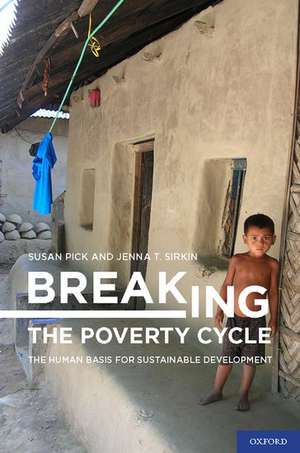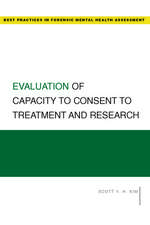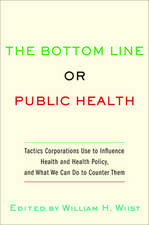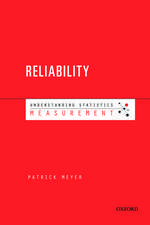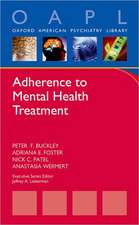Breaking the Poverty Cycle: The Human Basis for Sustainable Development
Autor Susan Pick, Jenna Sirkinen Limba Engleză Hardback – 16 sep 2010
Preț: 491.72 lei
Preț vechi: 674.02 lei
-27% Nou
Puncte Express: 738
Preț estimativ în valută:
94.10€ • 97.88$ • 77.69£
94.10€ • 97.88$ • 77.69£
Carte tipărită la comandă
Livrare economică 04-10 aprilie
Preluare comenzi: 021 569.72.76
Specificații
ISBN-13: 9780195383164
ISBN-10: 0195383168
Pagini: 332
Dimensiuni: 248 x 155 x 25 mm
Greutate: 0.63 kg
Editura: Oxford University Press
Colecția OUP USA
Locul publicării:New York, United States
ISBN-10: 0195383168
Pagini: 332
Dimensiuni: 248 x 155 x 25 mm
Greutate: 0.63 kg
Editura: Oxford University Press
Colecția OUP USA
Locul publicării:New York, United States
Recenzii
Psychology and developmental economics can make a difference, as Susan Pick and Jenna Sirkin demonstrate convincingly in this book. They describe a framework for sustainable development that is applicable from health education to entrepreneurship. The common theme is that people can take their life in their hands. The authors describe an amazingly rich variety of projects with often impressive outcomes among marginalized communities. This inspiring and insightful book is highly recommended." - A.J.R. van de Vijver, Professor of Psychology, Tilburg University
The book is rich in theories but it is even wealthier in experience. The concepts developed by Pick and Sirkin and their methodology are candidly subversive and may be very powerful tools for social change. Given the attention received by Sen´s new book, The Idea of Justice, this is a timely publication and a useful practical complementary exercise." - Rudolf Hommes, Former Colombian Finance Minister
Breaking the Poverty Cycle: The Human Basis for Sustainable Development, by Susan Pick and Jenna Sirkin, gives a great psychological contribution, especially for being generated in the Latin American scenario. Context, empowerment, choices, freedom and development abound. More than teaching us about culture and survival, it shows the ecological context of real people, their testimonies and choices. Empowerment and personal agency are regarded as manners of enhancing opportunities and reducing barriers to development. The answer to the everyday challenge of those people is simply: 'I want to, I can,' and it comes out as a brave and hopeful clamour!" - Silvia Koller, Professor, Universidade Federal do Rio Grande do Sul
Some may find it inspiring to read about how the authors have taken psychological ideas and implemented them into real-world interventions...the authors have convincingly shown that their programs are well thought out and are backed by years of hard work with many individuals in developing countries.
The book is rich in theories but it is even wealthier in experience. The concepts developed by Pick and Sirkin and their methodology are candidly subversive and may be very powerful tools for social change. Given the attention received by Sen´s new book, The Idea of Justice, this is a timely publication and a useful practical complementary exercise." - Rudolf Hommes, Former Colombian Finance Minister
Breaking the Poverty Cycle: The Human Basis for Sustainable Development, by Susan Pick and Jenna Sirkin, gives a great psychological contribution, especially for being generated in the Latin American scenario. Context, empowerment, choices, freedom and development abound. More than teaching us about culture and survival, it shows the ecological context of real people, their testimonies and choices. Empowerment and personal agency are regarded as manners of enhancing opportunities and reducing barriers to development. The answer to the everyday challenge of those people is simply: 'I want to, I can,' and it comes out as a brave and hopeful clamour!" - Silvia Koller, Professor, Universidade Federal do Rio Grande do Sul
Some may find it inspiring to read about how the authors have taken psychological ideas and implemented them into real-world interventions...the authors have convincingly shown that their programs are well thought out and are backed by years of hard work with many individuals in developing countries.
Notă biografică
Dr. Pick is Professor at the Faculty of Psychology of the Universidad Nacional Autónoma de México (UNAM), has been an invited scholar at Universidad Anahuac, Universidad Autónoma del Estado de México and Harvard University and has served as advisor to the Health, Education and Social Development Ministries of several Latin American countries. She is the founder and President of the Mexican Institute of Family and Population Research (IMIFAP). Her publications are in areas such as research methodology, health and empowerment, community participation, life skills and competencies, psychological barrier reduction and sexuality education for children, adolescents and parents. Dr. Pick holds the highest level (Level 3) in the National System of Researchers, and is also the former president of the Interamerican Society of Psychology (SIP).Jenna T. SirkinJenna is currently a health services researcher and a doctoral candidate at the Heller School for Social Policy and Management, Brandeis University and is also an Agency for Healthcare Research and Quality (AHRQ) Doctoral Training Fellow. She has been employed and conducted research in the fields of public health, health services research and international development. Jenna received her M.A. from Brandeis University in Social Policy and her B.A. from Tufts University in International Relations and Spanish with a concentration in Latin American studies. She was awarded the Rotary Ambassadorial Scholarship in 2006 to support her research during her residence at the Mexican Institute of Family and Population Research (IMIFAP) in Mexico City.
